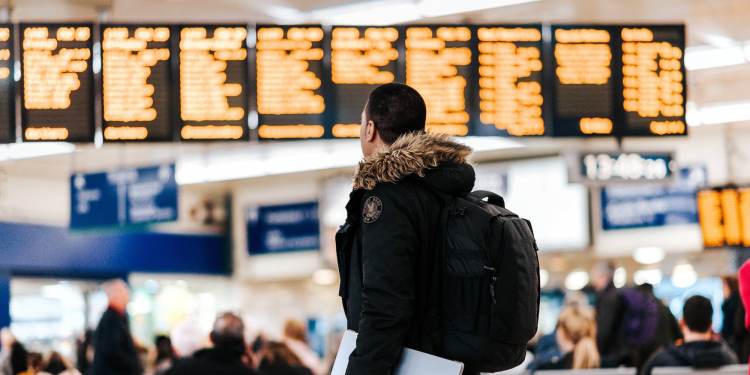Watch all the Transform 2020 sessions on-demand here.
Hundreds of thousands of travelers each year deal with flights that are delayed, canceled, or overbooked — or have their baggage misplaced. But passengers may not know that they can be compensated for these inconveniences. AirHelp, a Europe-based company that assists people in pursuing such claims, today announced two new bots to further automate its operations and sift through the monumental number of requests it receives.
AirHelp provides a free website people can use to determine if they are eligible for a refund from their airline. Founded in 2013 as a Y Combinator-backed startup, AirHelp claims to have aided more than 7 million people in processing airline compensation worth almost $930 million in total. The company, which operates in 30 countries, including the U.S., only takes a cut when a customer has been successfully reimbursed by the airline.
Naturally, it receives a high volume of claims. To sift through these, in 2016 it began working on bots to automate parts of its screening and analysis. The company launched two bots — Herman and Lara — and today it is adding AgA and Docky to the mix.
AgA (short for Agent’s Assistant) and Docky will help the company with customer service and automatic assessment of claims. AirHelp says it has been testing these bots internally since last year and that they have already assessed 30 percent of claims it receives with 95 percent accuracy. After making an assessment, if AgA comes to the conclusion that its decision is not perfect, it informs the operations agents to focus on the tasks needed to complete the assessment. Docky acts as an assistant operating within AgA to request missing documents from customers and handles 40 percent of those assignments.
June 5th: The AI Audit in NYC
Join us next week in NYC to engage with top executive leaders, delving into strategies for auditing AI models to ensure fairness, optimal performance, and ethical compliance across diverse organizations. Secure your attendance for this exclusive invite-only event.
Using AI to tackle monumental tasks
AirHelp’s new bots underscore its growing reliance on AI, which is increasingly being used by businesses — often with few resources — to automate some of their work. It also fits into a trend of consumer advocacy bots. Joshua Browder, a British-American entrepreneur, single-handedly built a bot called DoNotPay to help challenge traffic tickets in 2015 and later expanded the service to the U.K. and U.S. Within months of DoNotPay’s launch, it had successfully beaten 160,000 traffic tickets.
AirHelp’s new bots would complement Herman, which mimics the work of a legal agent and looks after 100 percent of cases requiring legal actions, and Lara, which assesses 60 percent of all cases that get past Herman’s virtual desk. Lara analyzes decisions from previous cases and considers all the aspects of new claims before making recommendations to human employers.
These two early bots have helped the company’s human legal team save about 1,960 hours of work each month, but AirHelp insists that the bots are not eating up human jobs. On the contrary, the company says such assistance has helped it grow its employee base. While AirHelp’s AI assistants check documents, make legal assessments, and analyze which country has jurisdiction over each claim, the company’s human workers “focus on company growth and service development,” a representative said. “As a travel tech company … AI is a big part of our business and has helped us to grow our capabilities and efficiency, as well as expanding from three to close to 700 employees in just over six years,” Johnny Quach, VP of product at AirHelp, told VentureBeat. He added that the company has “helped people in 30 countries to exercise their passenger rights.”
Of course, an AI is only as good as the data it is fed. That’s not a problem for AirHelp, which says it trained and refined Herman for more than three years and fed it with information from tens of thousands of court document proceedings in almost 30 jurisdictions. Herman has gotten so good that when it sees a claim that has been rejected by an airline, it offers alternative legal actions. The company says it tested Herman on 35,000 claims and found that it can identify the best jurisdiction in less than a second.
“The legal profession is changing with the use of artificial intelligence, and we have only seen the beginning. Integration of bots is streamlining the legal process and allowing legal teams to focus on more complex work,” said AirHelp CEO Henrik Zillmer. “Another benefit is that it saves us time and cuts our costs, which has made it possible for us to expand to more territories, process more claims, hire more people, and help more flight passengers. It is a win-win-situation.”


